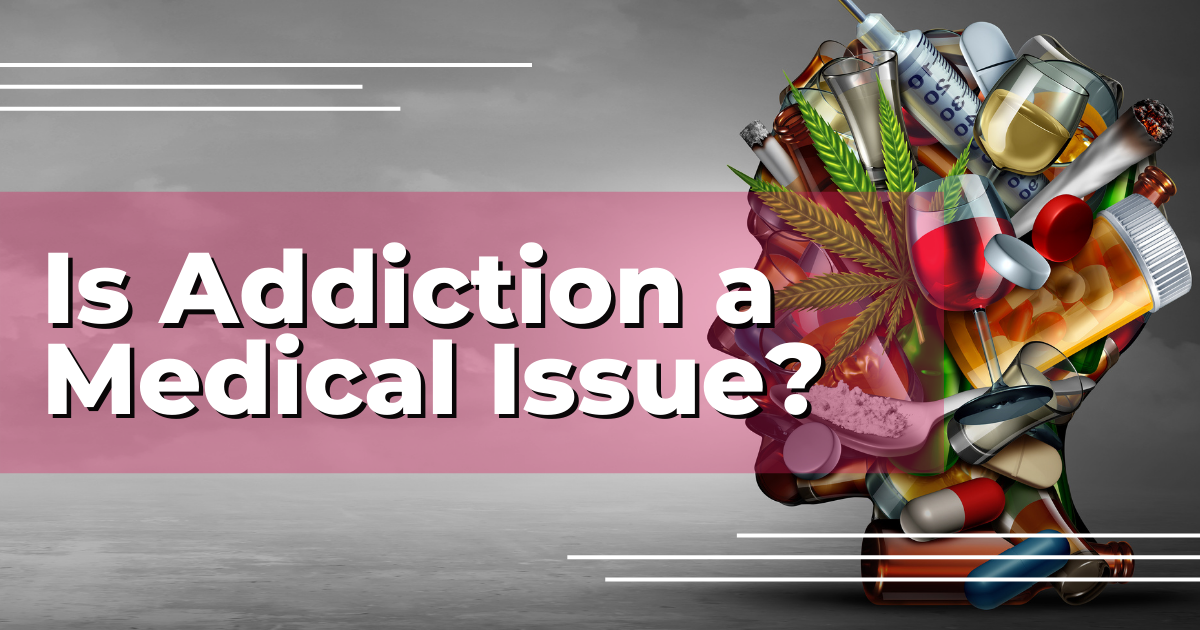Both the American Medical Association and the American Society of Addiction Medicine define addiction as a “chronic brain disorder” rather than a behavior problem, or the result of making bad choices. The best way to deal with an addiction then is to seek professional treatment.
Considered a medically treatable disease rather than a moral failing, addiction is a condition characterized by the compulsive use of substances despite harmful consequences. Like other diseases, addiction is influenced by a wide range of factors, which may include genetics and the social environment of an individual. All instances of the disease are highly individualized. Addiction can have severe physical, psychological, and social consequences, requiring professional medical treatment to address.
How Is Addiction a Disease?
In 2016, former surgeon general Vivek Murthy, publicly confirmed that addiction is a chronic illness, marked by significant changes in the brain. While most people initially use drugs or alcohol voluntarily, believing they can control how often and how much they consume, they end up needing to use more of the substance in order to achieve the desired effect. A University of Michigan report explains how drugs or alcohol can hijack pleasure centers in the brain, known as dopamine pathways, and make dopaminergic functions far more powerful than normal. This creates a feel-good response and can alter the brain’s functions dramatically over long periods. With the right treatment, the quality of life for someone suffering from addiction can be dramatically improved.
Why Should We Treat Addiction as a Medical Issue?
Like many other diseases, addiction can be managed but not “cured,” and an addiction requires ongoing care and support to prevent relapse and maintain long term recovery. Overall, the current understanding of addiction as a disease has helped shift the focus from considering it as a moral failure and stigmatizing people suffering from a treatable addiction. The current approach is to provide them with the medical care and support that they need to achieve lasting recovery. This kind of approach is far more effective for achieving optimal outcomes in the short and long term for every patient.
Dr. Mark Depman shared his experience watching addiction treatment change over the years with Seven Days Vermont. According to Dr. Depman, the traditional method of treating people was more along the lines of letting them sleep off a drunken night in a hospital emergency room after checking them out to make sure they were safe. Doctors would then simply send them on their way with an Alcoholics Anonymous directory page without any further screening and assistance. Medical professionals like Dr. Depman weren’t satisfied with this approach, so many hospitals are trying new methods of getting those suffering from the effects of addiction the right treatment through expanded resources available at the point of first contact.
Pre-Addiction Screening
Screenings and questionnaires are becoming standard to make sure that signs of addiction are spotted in patients before they realize they’re in the midst of a full-blown substance use disorder. Dr. Nora Volkow, the head of the National Institute on Drug Abuse (NIDA), has suggested that doctors work on spotting something called “pre-addiction” through screening patients with questions about substance use habits. This allows medical professionals to get ahead of a developed addiction and stop people from traveling down the road to lasting issues that keep them from living healthy lives. Pre-addiction screening can be done from the comfort of a doctor’s office during a standard visit.
Learn More
Addiction is what we’re here to treat. If you need help getting the right care for a substance use disorder, Landmark Recovery is here to help. Give us a call today at 888-448-0302. Our dedicated admissions specialists are ready to help you live your wildest dreams and live beyond addiction.

Choose Recovery Over Addiction
We're here 24/7 to help you get the care you need to live life on your terms, without drugs or alcohol. Talk to our recovery specialists today and learn about our integrated treatment programs.




